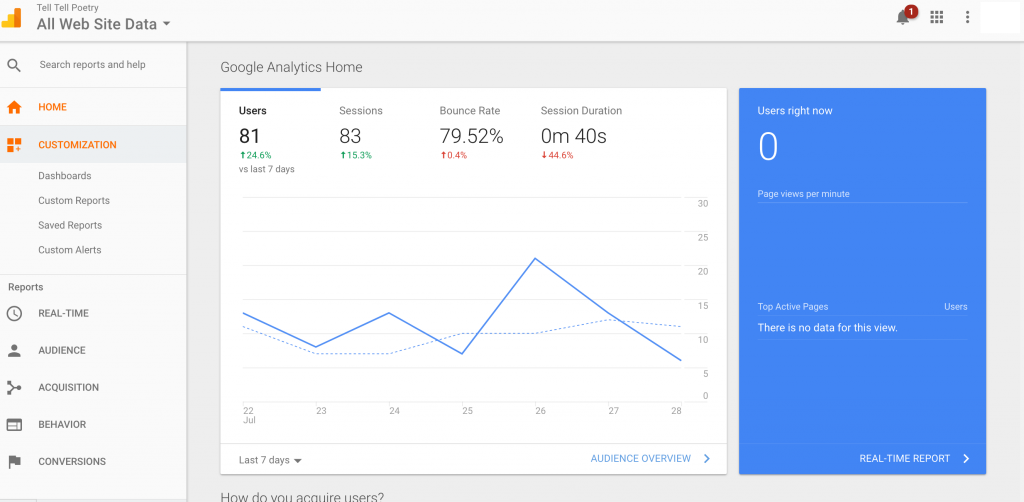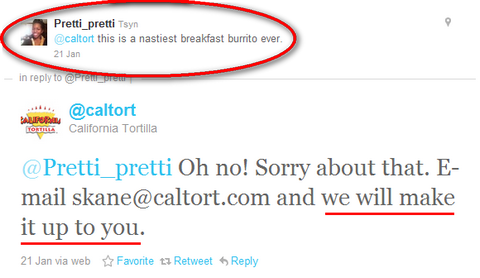Do you track data?
It’s safe to say that with the birth of the internet, the marketing landscape has been completely revolutionized. As a matter of fact, the way we humans communicate with each other has been impacted greatly. And therefore, the way brands communicate with their customers has also had to change as well.
Today, if your business is nowhere to be found on the internet, you are irrelevant to the world. Furthermore, if you are not actively making online marketing a part of your marketing strategy, you are missing out on tremendous opportunities of reaching your target audience and increasing awareness about your business. Which, as you know, ultimately drives more business.
The internet has laid the foundation for an array of different marketing methods and tactics. Here are just some of them:
- Social media
- Search engine marketing
- Email marketing
- Display advertising
- Retargeting
…And a million other online marketing methods.
What the internet has also done is opened up a completely new way for marketers to measure and evaluate the results from their marketing campaigns. With traditional marketing methods such as television, radio, and display advertising, measuring the results is difficult, to say the least. Marketers have always struggled with this as long as these marketing mediums have been around, but with the marketing methods that apply online, this has completely changed.
Online marketing methods give completely different opportunities for marketers to track their data and measuring the results from their campaigns whether they are running Facebook ads or YouTube pre-roll ads.
Measuring the results from traditional marketing methods is hard and difficult. For example, how will you possibly know how many people looked at your billboard next to the road? More specifically, how can you know how many actually consumed your ad. Even more detailed, how can you know the demographics of those people who consumed it? Needless to say, this is essentially impossible.
In this article, we will share some of our top ways to track data from your Online Marketing Campaign.
Why you should track data from your marketing campaigns?
First things first, why should you track data from your online marketing campaigns?
Well, the answer is pretty self-explanatory, but if you aren’t measuring the results from your efforts, how can you possibly know how the campaign performed?
And most importantly, how will you be able to know what you need (and can) improve for future campaigns so you can generate even better results?
Furthermore, when you are not tracking data from your campaigns, all your future campaigns will more or less be a guessing game. You are marketing to people you don’t really know who they are, with content you don’t even know if they like, and through mediums, you don’t even know they are on.
Does not make much sense, right?
Each of your online marketing campaigns leaves a ton of data for you to collect, but the truth is that many marketers still neglect this.
Ways to track your online marketing data
The way you measure data varies a lot depending on which marketing method you choose to use.
What is so great is that many of the digital marketing platforms such as Google, Facebook, Twitter, and Instagram have developed their own analytics tools that give extremely detailed information and rich data. From this built-in analytics tool, you can get a ton of data about a ton of things that ultimately help you understand how your campaigns is performing, what people you are reaching, and how you can improve.

Back in the days, marketers could only dream about this type of marketing data, but now, thanks to the internet, it is at the fingertips of each and every single marketer. Plus, these tools are completely free. It’s quite amazing when you think about it.
All of these built-in tools are extremely valuable to use and a great start for you to track your data.
This data allows you to do three key things:
- Understand how your ads are performing
- How you can improve your ads
- How your content resonates with your audience
Third-party tools
Apart from the built-in data tools, there are many other data and analytics tools that you can use to collect data and measure the results from your online marketing campaigns.
These tools usually have a monthly cost, but at the same time, they often offer more detailed, or at least more specific data focused on one particular area. Which third-party analytics tool you should look at really comes down to your online marketing strategies and which tactics you use. If you put a lot of focus into your website and search engine optimization, you obviously want to look at website promotion tools/SEO tools that may give you data that can help with improved results.
Don’t underestimate the obvious metrics
It’s not uncommon that we see marketers who look for the best and most detailed analytics tools, yet at the same time, they completely miss valuable metrics that are right in front of their own eyes.

It’s not only about the analytics tools. Sometimes, it’s about understanding which type of information that is available is also valuable for your brand for current or future marketing campaigns.
For example, if you use social media, you probably have people commenting on your posts and engaging with you. What many marketers don’t think about is that their customers and fans are leaving a ton of valuable data and feedback here. This is data that is tremendously valuable about your brand.
For example, if someone leaves a comment on your social media page.
This brings me to my next point which is social listening
Social listening
Social listening is another way for you to collect data about your own brand on social media.
More specifically, it is a way to gain listen to what people are saying about your company online, and then seeing if you can use that information to improve or adjust.

You’d be surprised at how much information people leave on social media about you. The problem is that most marketers simply don’t pay attention. Now, there are many good social listening tools that you can use that will be really helpful. But if you haven’t even started yet, doing good old manual work is a great start. Go through your social media messages, look at each and every single comment on your social media posts, look at posts that have tagged you or mentioned your brand. Then collect this data and take it into consideration for the future.

